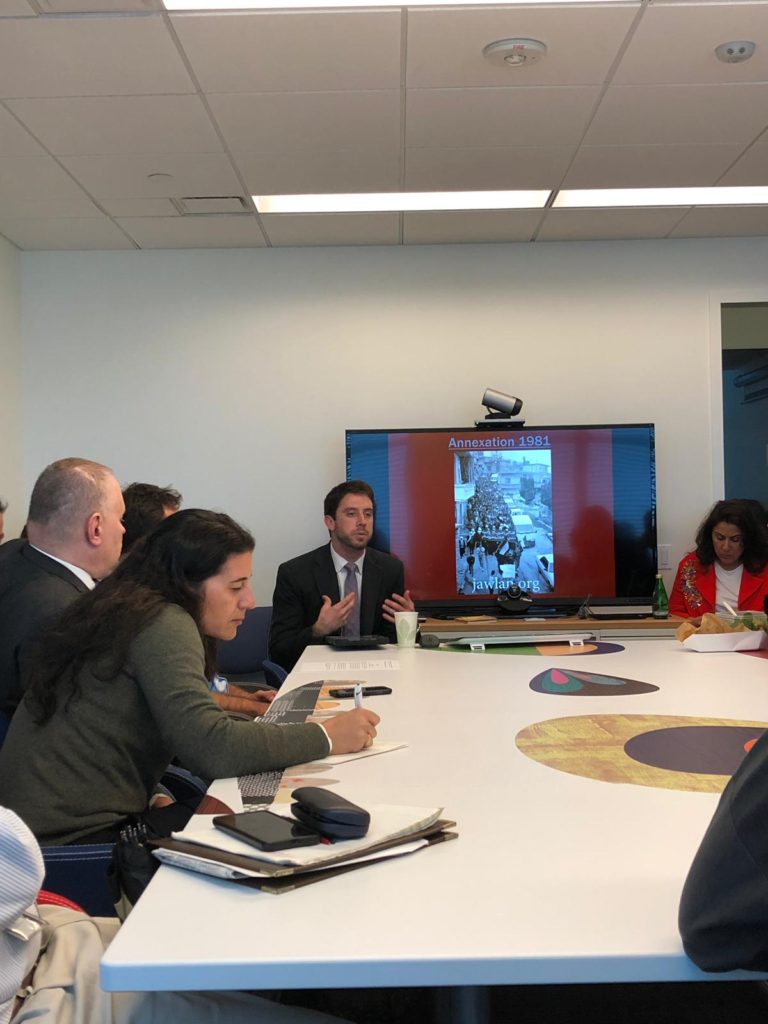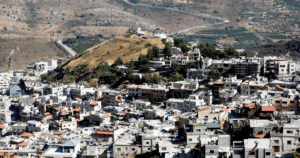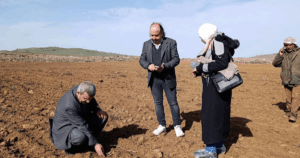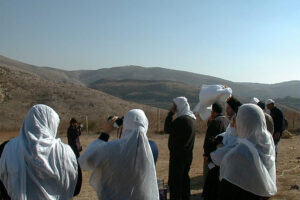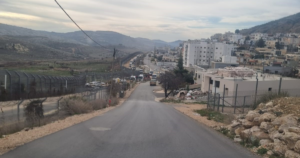At the United Nations (“U.N.”) Headquarters on Wednesday, October 9th, Al-Marsad – Arab Human Rights Centre in Golan Heights (“Al-Marsad”) provided a presentation on its human rights work and the history of the occupied Syrian Golan (“Golan”). The presentation was open to U.N. staff and focused on how recent developments in the Golan are impacting the area’s indigenous Syrian population and their basic human rights. The presentation allowed Al-Marsad to share its intimate insight on the region to highlight the plight of indigenous Golani Syrians who have now lived under Israeli occupation for over 52 years.
As part of its advocacy work, Al-Marsad attempts to inform policy makers at national government and intergovernmental institutions with presentations that address the history, current situation, and legal issues impacting Syrians in the Golan. Such presentations discuss these issues through the eyes of the Golan’s indigenous community while underlining how Israel has solidified its occupation of the Golan with discriminatory and unlawful actions. Much of the accurate, factual history of the Golan and Israel’s occupation is overlooked today because Israel has successfully dictated its own bias narrative that cleanses the area of any association with its Arab-Syrian roots.
Al-Marsad’s presentation at the U.N. followed its customary information sharing and awareness raising formula but also included a productive discussion on recent events in the region, namely the United States’ recognition of Israel’s claimed “sovereignty” over the Golan. Additional time was spent discussing how Al-Marsad is currently being targeted and attacked for its human rights work under Israel’s anti-boycott, divestment, and sanctions law.
Having had this informative meeting, Al-Marsad hopes that UN staff are now better educated on the Golan. With this rounded, new perspective on the region, those working at the U.N. on human rights, international law, and peace in the Middle East will be better equipped to address the issues that impact the Golan and its indigenous population.

